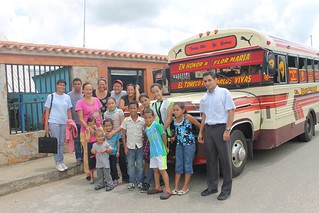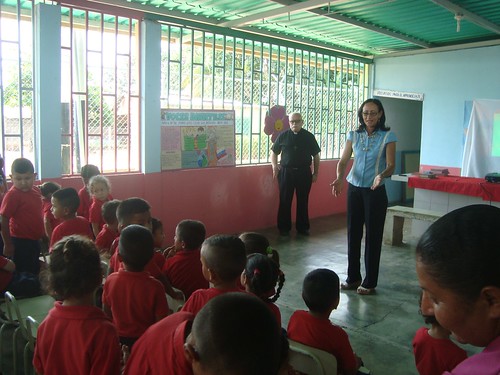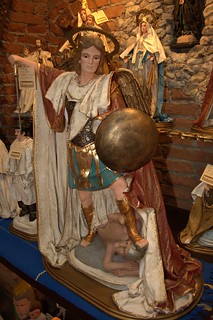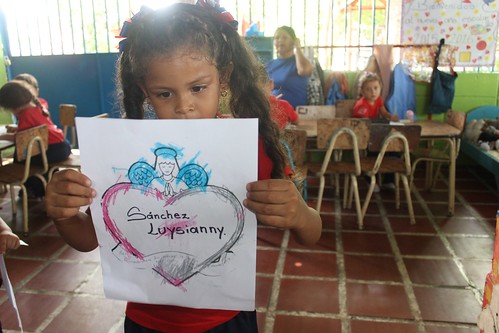On September 15, 2024, the sixteenth Sunday after Trinity, we welcomed Maria Cecilia Ortega as a communicant member. Four of her children and three grandchildren were baptized at our mission, and five children received their first communion.
Her verse of affirmation of faith was Psalm 118:24: “This is the day that the Lord has made; we will be glad and rejoice in it.” With this verse we celebrated only that Sunday, but the entire period of grace and salvation extending to the last day of the world (Isaiah 49:8; 2 Corinthians 6:2; Revelation 19:7). In ancient Israel, Psalm 118 was sung by the faithful as they entered the Temple in procession in Jerusalem on the first day of the Jewish liturgical year. The psalm also was sung by the Jews around the Passover table and was most likely the final hymn sung by Jesus and his disciples as they celebrated their last Passover (Matthew 26:30). The multitude acclaimed Jesus as the Messiah with the words of Psalm 118:25-26 as he entered Jerusalem on Palm Sunday. We sing this every Sunday as the second part of the Sanctus: “Hosanna, hosanna, hosanna in the highest. Blessed is He who comes in the name of the Lord. Hosanna, hosanna, hosanna in the highest.”

School supplies from LeadaChild
On the same Sunday, we delivered backpacks with school supplies to the children of the mission, thanks to the donations of LeadaChild, a missionary society that has supported our mission since 2006. The people of LeadaChild provide funds for scholarships, school registration, and supplies for children so they can attend Lutheran schools and educational enrichment programs. They also provide professional develop
ment for leaders and teachers, with an emphasis on effective ways to share the Gospel and teach biblical truths to children. Our young women showed the fruits of the crocheting that accompanied their Bible study during the vacation.
Messengers of God
Every Friday I participate in a reading of the Greek text of the New Testament with the Rev. Dr. Roberto Bustamante and seminarians at Concordia El Reformador Seminary in the Dominican Republic. For September 27, the Friday before we celebrated the feast of St. Michael and All Angels on Sunday, September 29, the selection of Galatians 1:6-9 was most appropriate, especially verse 8. “But even if we, or an angel from heaven, preach any other gospel to you than that we have preached to you, let him be accursed.”
The word “angel” (ἄγγελος) is the Greek word for “messenger”. It is used not only in the Greek New Testament, but also in the Septuagint, the ancient Greek translation of the Old Testament, for the word מֲלְאָךְ (malak), which means the same. In some passages of the Old Testament, “the Angel of the Lord” is clearly God Himself (Genesis 16:7; Exodus 3:2; Numbers 22:23; 1 Kings 19:7). The divine Angel of the Lord appears in the New Testament as the Word made flesh, Jesus Christ (John 1:14; Hebrews 1:1-2).
At times the word “angel is applied to human messengers of God. In the Old Testament, prophets and priests of the Temple are called angels (Isaiah 42:19; 44:26; Malachi 2:7). In the opening chapters of the Revelation of St. John, the bishops of the seven churches in Asia Minor are called angels (“To the angel of the church of Ephesus write…” Revelation 2:1). That is why St. Paul tells the Galatians that any “angel” or messenger that preaches a gospel different than the one revealed to the prophets and apostles must be ἀνάθεμα (anathema), a word which may be translated “accursed”, but also “excomunicated”. The church must repudiate human teachers of false doctrine so that they might repent before God’s judgment falls on them.
Of course, the majority of references to angels in the Bible describe spiritual beings who are neither human nor divine. In Revelation 22:8-9, the Apostle John prostrates himself to worship one of these angels, but the angel replies, “See that you do not do that. For I am your fellow servant, and of your brethren the prophets, and of those who keep the words of this book. Worship God.”
















